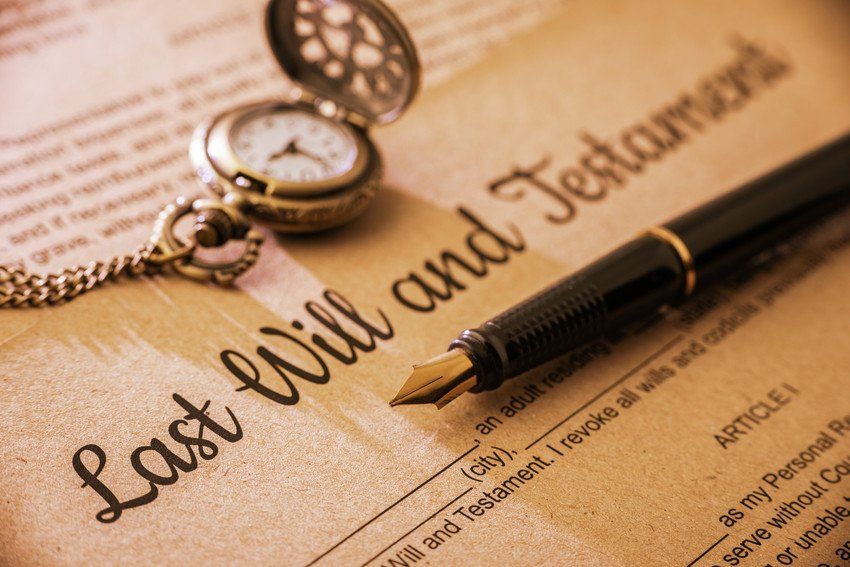Your Complete Guide To Choosing the Right Divorce Lawyer

Going through a divorce can be a difficult time both emotionally and financially. That’s why it’s crucial you seek legal support from a reliable divorce lawyer to help you navigate this rough period of your life. This extensive guide explains the roles and responsibilities of a divorce lawyer, whether you need one and how to choose the right lawyer for you.
What is a divorce lawyer?
A divorce lawyer is a legal expert who specialises in facilitating divorce procedures as well as dissolution and annulment. These professionals tend to also be family law practitioners who analyse a variety of issues that are related to marriage and family.
How can a divorce lawyer help?
A divorce lawyer can help you navigate the complex legal side of divorce and provide you with some peace of mind.
Your lawyer will:
● discuss your options, including dispute resolution such as mediation
● explain the divorce process and what you need to do at each stage
● start the divorce action for you by filing the necessary forms and drawing up divorce papers
● help you reach an agreement with your ex-partner without having to go to court
● provide help and support with related legal issues, such as where each person will live and who gets what, and future arrangements for any children
● represent you in court if necessary
Do I need a family law attorney?
If you are a young, childless couple who have only been married a few years, a DIY divorce may well be a realistic option and save you some money. You could explore options such as mediation.
However if your divorce involves significant financial issues, it may be more sensible to use a divorce lawyer, as the costs of making a mistake could be much greater than any legal fees you pay. It can be particularly important to get advice if:
● one of you is financially dependent on the other, for example if you have given up work to look after children;
● your divorce settlement needs to reflect the value of more complicated financial assets, such as pension funds, business interests, trusts or overseas assets;
● you have joint debts and aren't sure how to sort them out;
● you think your partner is hiding information about the true financial position;
● you want to be sure that you settle financial claims once and for all by getting a consent order.
Ideally the arrangements for any children will be agreed between the two of you. You may need to take legal advice if:
● you cannot agree where the children will live and what contact rights the other parent will have;
● you cannot agree child maintenance and one of you feels that statutory child maintenance is not enough (for example, if the non-resident parent is a very high earner or there are extra costs such as private school fees);
● the family includes stepchildren.
Other situations where you should consider using a family law solicitor include if:
● you need to take urgent action: for example, because you think your spouse is about to file for divorce in another country or take your children abroad;
● you are a victim of domestic violence or abuse, or think that your child is at risk;
● your spouse owns or rents the home you live in and you are worried about being left homeless;
● there are international issues: for example, if you spend part of your lives overseas or one of you is a non-UK national;
● you know your spouse is going to be difficult, you find it difficult to negotiate with your spouse or you feel under pressure to agree with what your spouse wants;
● you are simply finding it all too much to cope with;
● you continue to have problems after the divorce: for example, your ex-spouse fails to make maintenance payments or refuses you contact with the children.
What can I do to find the right divorce lawyer for me?
It may take some time to find the right divorce lawyer for your case, and there are several considerations you should keep in mind. Here’s some active steps you can take to help find appropriate legal assistance for you:
Choose a reliable lawyer
Your divorce or civil dissolution can go through many stages, some more difficult than others. What may seem simple at first could become more complex further down the line. That’s why you should find a lawyer that’s accessible and contactable at short notice, should you have any questions or need to talk about any disputes that may arise. You will be meeting your lawyer in person, so it’s useful to have one in your local area or who will travel to see you at work.
Conduct thorough research
Find out what other people have to say about the law firm or lawyer you’re going to be using. Read online reviews or ask friends or colleagues who have personal experience of dealing with law firms or solicitors. It’s wise to find a lawyer that specialises in divorce law or civil dissolution, particularly if your case involves a high-net-worth individual or a child arrangements battle. Many law firms list their lawyers’ specialities and expertise to help you narrow down your search.
During your first consultation, don’t be afraid to ask your new lawyer whether he or she has experience dealing with cases similar to your own - you’ll want to ensure you’re in the best hands possible.
Ensure you establish a good relationship with your lawyer
Use the consultation as a chance to get to know your lawyer on a personal level as well as professionally. Talk about your needs, and ask about their experience in similar cases. It’s important you feel comfortable and at ease with your chosen solicitor, as you’ll be talking to them about personal and potentially difficult matters.
You may find that the lawyer you meet at first is not the lawyer for you - a reputable solicitor will guide you to a more suitable colleague in their firm, or even suggest another law firm altogether.
Work out the costs upfront
It’s important that you get a good idea of how much the legal services will cost so you can budget accordingly. Lawyers may charge an hourly rate, either billed in intervals or at the end of proceedings.
Some lawyers offer a fixed fee for some work, so there are no nasty surprises. For your piece of mind, find out how and when your lawyer charges.
Prepare well for your consultation
Make the most out of your initial consultation and don’t leave any stone unturned. Book your appointment when you have enough time to sit down and have a conversation with a lawyer. Choose a time when you’re not in a rush to get somewhere else, so you can focus on your meeting.
Your solicitor will want to know basic details so make a note of these if you’re not 100% sure. They will need to know your marriage dates, personal and spousal income, what assets you have, estimated property valuations and what pensions you have. It’s also a good idea to get this prepared so you know what kind of settlement you want to achieve.
Keep in mind what you want to achieve
Although the process will be an emotional one, try not to bring any bitter feelings into your negotiations. Letting negative emotions take over will make the divorce or dissolution more complicated, longer and possibly more expensive. And while your lawyer may be sympathetic to your cause, keeping your situation factual will save time and get you the best possible outcome. Be clear about what you want from the start, and stick to your action plan.
Reliable divorce support at Almy & Thomas
At Almy & Thomas Solicitors we deliver reliable and professional legal divorce support. We believe the best outcome for all is fundamentally important and our divorce and family lawyers will always strive to achieve this. Our family law solicitors will reliably provide you with the clarity you need at such a difficult time. No matter your circumstances, we’re here to offer you support, guidance, and professional legal advice throughout the process - contact us today to find out more about our services.







